
by Ria Olivier | Sep 23, 2025 | Antarctica, Gough Island, Heritage Day, Important Dates, Marion Island
Heritage Day on 24 September recognises and celebrates the cultural wealth of our nation. Across South Africa, people reflect on our shared histories, diverse traditions, and the heritage that continues to shape our identity.
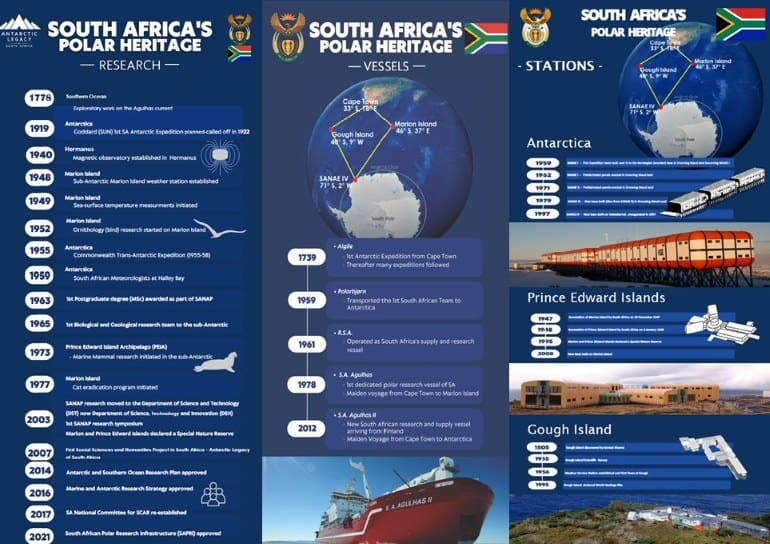 Antarctic Legacy of South Africa (ALSA) collaborated with Iziko Museums of South Africa in Cape Town to highlight a special part of our heritage – our polar research history. Visitors to the museum will encounter banners dedicated to South Africa’s polar heritage.
Antarctic Legacy of South Africa (ALSA) collaborated with Iziko Museums of South Africa in Cape Town to highlight a special part of our heritage – our polar research history. Visitors to the museum will encounter banners dedicated to South Africa’s polar heritage.
 Iziko Museums in Cape Town host a permanent exhibition the Sentinels of The South – (above the display of South Africa’s first explorers:
Iziko Museums in Cape Town host a permanent exhibition the Sentinels of The South – (above the display of South Africa’s first explorers:
“The exhibition examines the history, discoveries and current role of South Africa’s Antarctic and Southern Ocean exploration. It takes visitors through the background and challenges of early Antarctic exploration, and South Africa’s contribution to it. The rich and unique biodiversity found on these islands, and the part the islands play in helping us understand some of the global issues affecting everyday South Africans, are highlighted. The exhibition also showcases South Africa’s multidisciplinary Antarctic scientific endeavours, our state-of-the-art research facilities, and our flagship research vessel, the SA Agulhas II.”
On Heritage Day visit the IZIKO museum in Cape Town to learn about South Africa’s Polar Heritage
South Africans celebrate Heritage Day by remembering the cultural traditions and histories that make up the fabric of our nation. Across the country, various events bring communities together in celebration.
Visit and Discover
On Heritage Day, we invite you to visit Iziko Museums in Cape Town and immerse yourself in South Africa’s Polar Heritage. Learn more about our explorers, scientists, and the role our country plays in global Antarctic research.
Heritage is not only about where we come from – it is also about the legacies we build for the future. By celebrating our polar research heritage, we acknowledge the contributions of South Africans past and present, ensuring that this important story remains part of our national identity.

by Ria Olivier | Apr 20, 2020 | Announcement, Environment, Gough Island, Heritage Day, Important Dates, International Days, sub-Antarctic


 “World Heritage Day or the International Day of Monuments and Sites has always been an occasion to reflect upon – and often visit – heritage sites that are important to us. This year, during the Covid-19 crisis, most of us can only enjoy our heritage online, through virtual visits and tours, as well as social media posts.” – UNESCO (Visit the ALSA archive and the SANAP website photo galleries to see images)
“World Heritage Day or the International Day of Monuments and Sites has always been an occasion to reflect upon – and often visit – heritage sites that are important to us. This year, during the Covid-19 crisis, most of us can only enjoy our heritage online, through virtual visits and tours, as well as social media posts.” – UNESCO (Visit the ALSA archive and the SANAP website photo galleries to see images)
Owing largely to its spectacular abundance of seabirds, and its unusual and reputedly pristine landscape, Gough Island was declared a wildlife reserve under the Tristan da Cunha Conservation Ordinance of 1976, gained Scientific/Strict Nature Reserve Status under IUCN Category I in 1985, was inscribed on the IUCN World Heritage list (under criteria iii, iv) in 1995, and in 1997 became a nature reserve under the Tristan da Cunha Conservation (Amendment) Ordinance. The nature reserve now encompasses a 12 nautical mile zone around the shore. Activities on Gough Island and in the surrounding waters are regulated by formal ordinances of Tristan da Cunha, including those for Conservation, for Export and Import Control, and for Fisheries Limits, and by the adoption of a formal manage1nent plan. (From “Gough Island; a Natural history” by C Hanel, SL Chown and KJ Gaston)



 The Gough and Inaccessible Islands World Heritage Site Management Plan focuses on identifying priority actions for the conservation of the property over a five year period, and does not supersede the two existing Management Plans for Gough and Inaccessible Islands. Separate zoning strategies for Gough and Inaccessible Islands have been developed. On Gough, there are Logistic, Marine, Scientific research, and Conservation zones; on Inaccessible there are Accommodation, Natural, Wilderness, and Marine zones. Within these various areas, defined in detail in the respective Management Plans, certain activities are constrained or allowed. A single zoning strategy is needed covering the whole World Heritage property, including the marine area. –UNESCO
The Gough and Inaccessible Islands World Heritage Site Management Plan focuses on identifying priority actions for the conservation of the property over a five year period, and does not supersede the two existing Management Plans for Gough and Inaccessible Islands. Separate zoning strategies for Gough and Inaccessible Islands have been developed. On Gough, there are Logistic, Marine, Scientific research, and Conservation zones; on Inaccessible there are Accommodation, Natural, Wilderness, and Marine zones. Within these various areas, defined in detail in the respective Management Plans, certain activities are constrained or allowed. A single zoning strategy is needed covering the whole World Heritage property, including the marine area. –UNESCO


 The site, located in the south Atlantic, is one of the least-disrupted island and marine ecosystems in the cool temperate zone. The spectacular cliffs of Gough, towering above the ocean, are home to one of the world’s largest colonies of sea birds. Gough Island is home to two endemic species of land birds, the Gallinule Comeri (Gough Moorhen-below left)and the Gough Rowettia Goughhensis (Gough Finch- below middle,right), as well as to 12 endemic species of plants.
The site, located in the south Atlantic, is one of the least-disrupted island and marine ecosystems in the cool temperate zone. The spectacular cliffs of Gough, towering above the ocean, are home to one of the world’s largest colonies of sea birds. Gough Island is home to two endemic species of land birds, the Gallinule Comeri (Gough Moorhen-below left)and the Gough Rowettia Goughhensis (Gough Finch- below middle,right), as well as to 12 endemic species of plants.



Although now most widely known as a haven for seabirds and an important conservation area in the Southern Ocean, the island has long caught the attention of mariners and adventurers. At first, the island was appreciated as a source of perennial fresh water, whilst later its strategic position, unusual terrestrial flora and fauna, and marine living resources have proven the attraction.
 Its position in the path of cold fronts generated in the far Southern Ocean and on their way to South Africa has meant that the conditions experienced at Gough Island serve as an early warning for those that can be expected in South Africa and along the Cape sea route. for this reason, a South African meteorological station has been maintained at the island in an agreement reached with the administration of Tristan da Cunha. From: “Gough Island; a Natural history” by C Hanel, SL Chown and KJ Gaston
Its position in the path of cold fronts generated in the far Southern Ocean and on their way to South Africa has meant that the conditions experienced at Gough Island serve as an early warning for those that can be expected in South Africa and along the Cape sea route. for this reason, a South African meteorological station has been maintained at the island in an agreement reached with the administration of Tristan da Cunha. From: “Gough Island; a Natural history” by C Hanel, SL Chown and KJ Gaston
Photo Credits: G Roussouw, T McSherry, J Cleeland
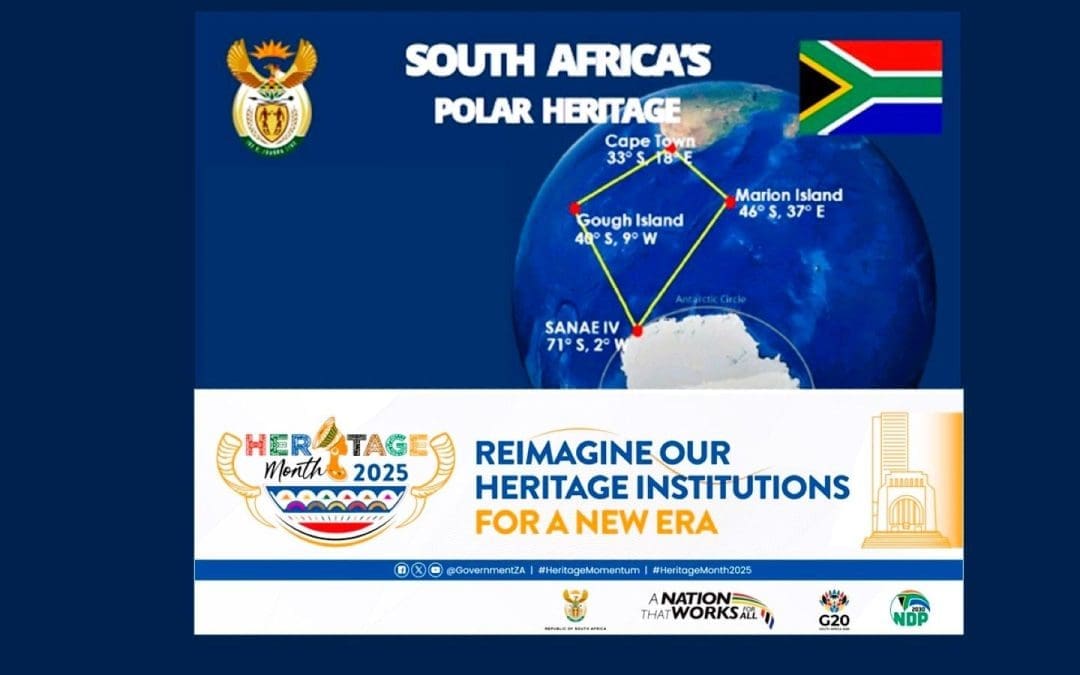
 Antarctic Legacy of South Africa (ALSA) collaborated with Iziko Museums of South Africa in Cape Town to highlight a special part of our heritage – our polar research history. Visitors to the museum will encounter banners dedicated to South Africa’s polar heritage.
Antarctic Legacy of South Africa (ALSA) collaborated with Iziko Museums of South Africa in Cape Town to highlight a special part of our heritage – our polar research history. Visitors to the museum will encounter banners dedicated to South Africa’s polar heritage. Iziko Museums in Cape Town host a permanent exhibition the Sentinels of The South – (above the display of South Africa’s first explorers:
Iziko Museums in Cape Town host a permanent exhibition the Sentinels of The South – (above the display of South Africa’s first explorers:
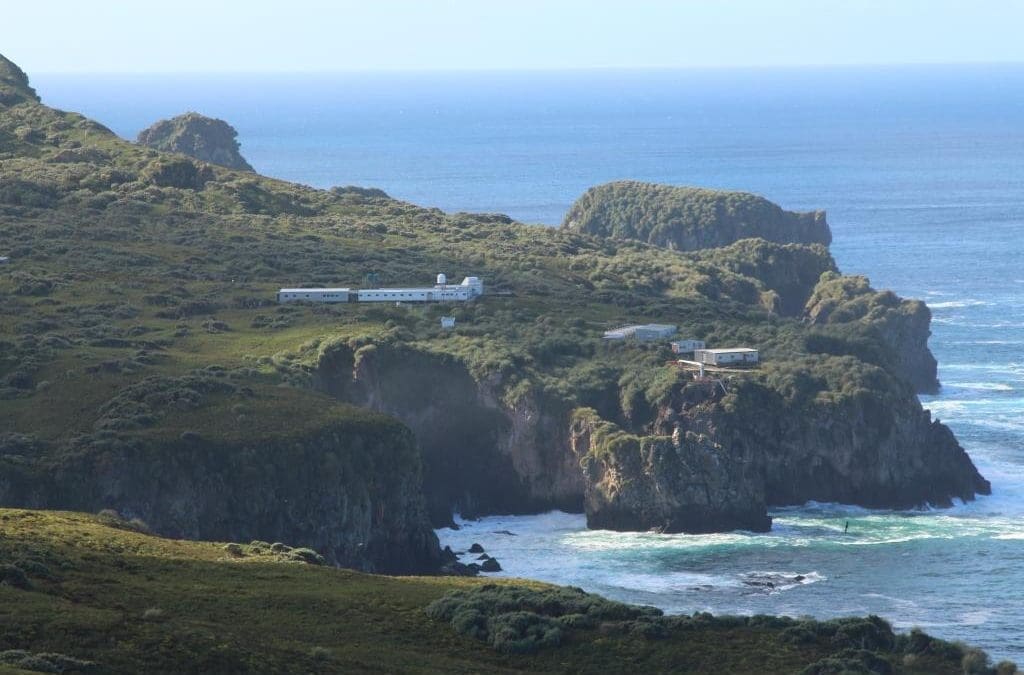
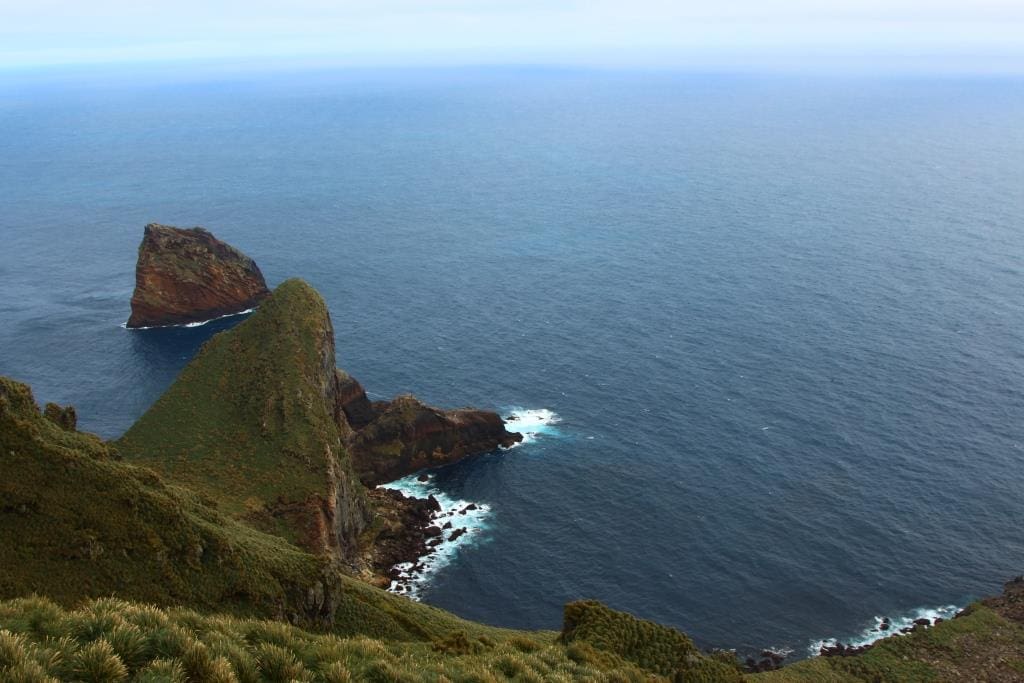
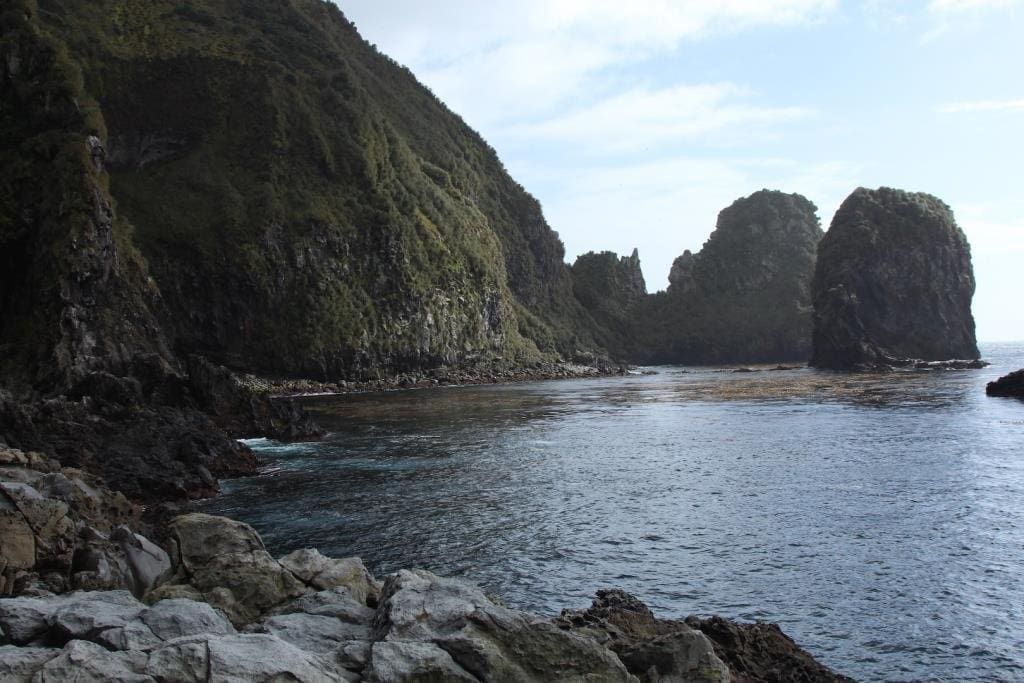
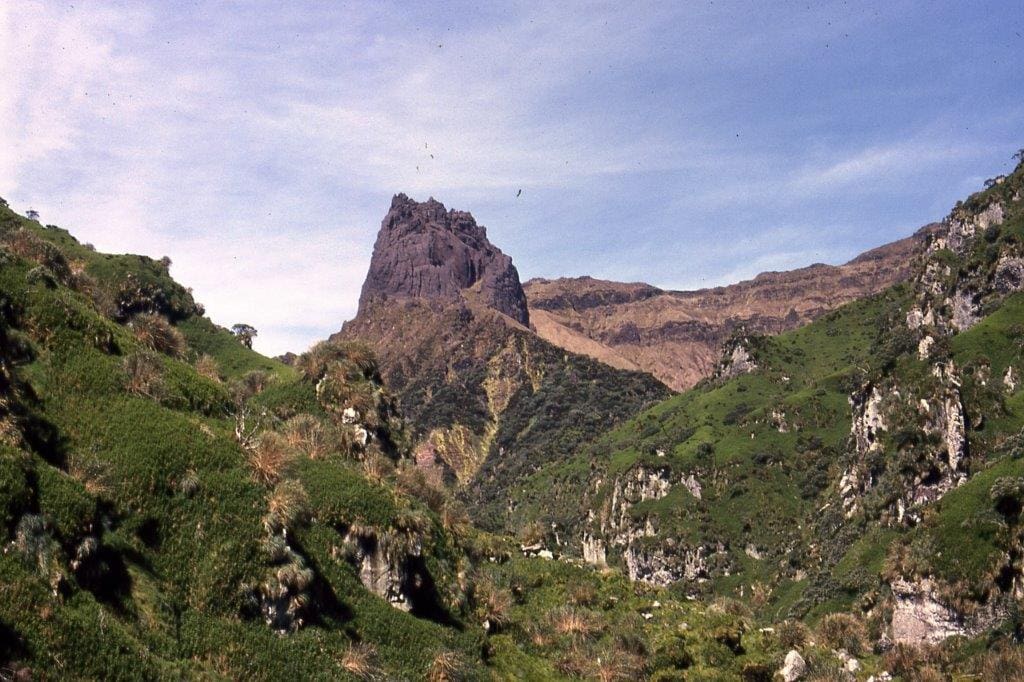 “World Heritage Day or the International Day of Monuments and Sites has always been an occasion to reflect upon – and often visit – heritage sites that are important to us. This year, during the Covid-19 crisis, most of us can only enjoy our heritage online, through virtual visits and tours, as well as social media posts.” – UNESCO (Visit the ALSA archive and the
“World Heritage Day or the International Day of Monuments and Sites has always been an occasion to reflect upon – and often visit – heritage sites that are important to us. This year, during the Covid-19 crisis, most of us can only enjoy our heritage online, through virtual visits and tours, as well as social media posts.” – UNESCO (Visit the ALSA archive and the 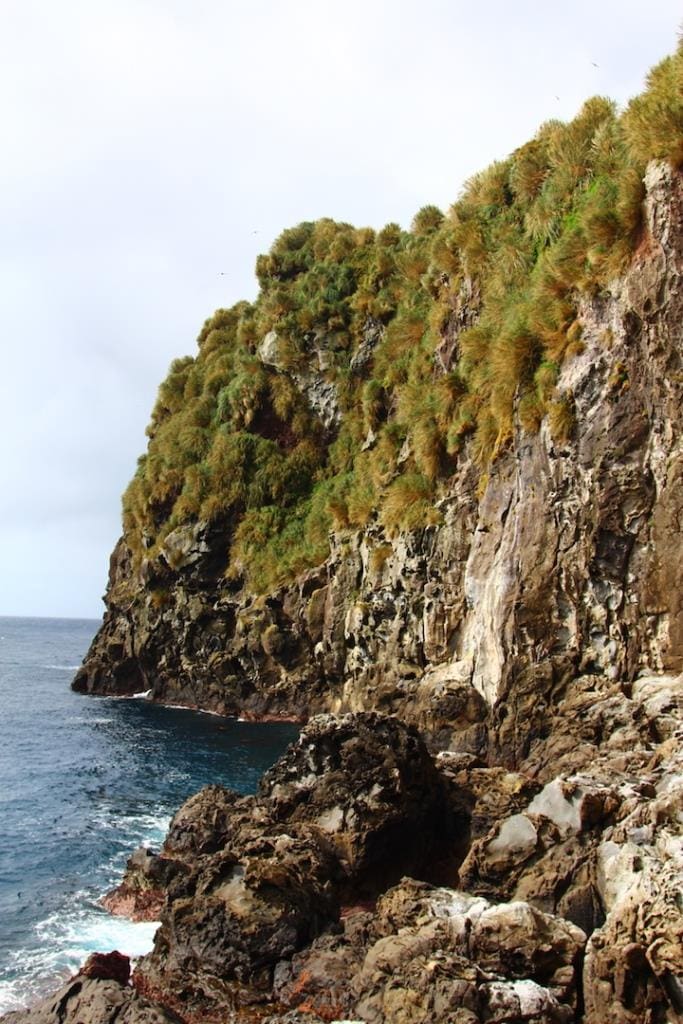
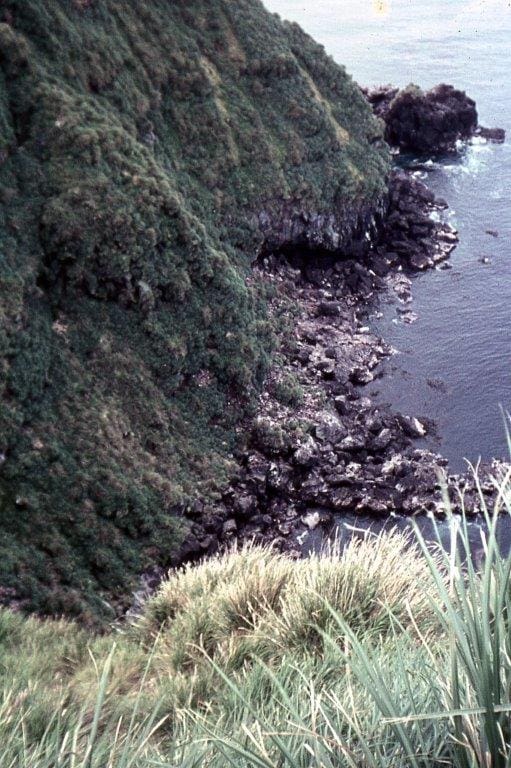
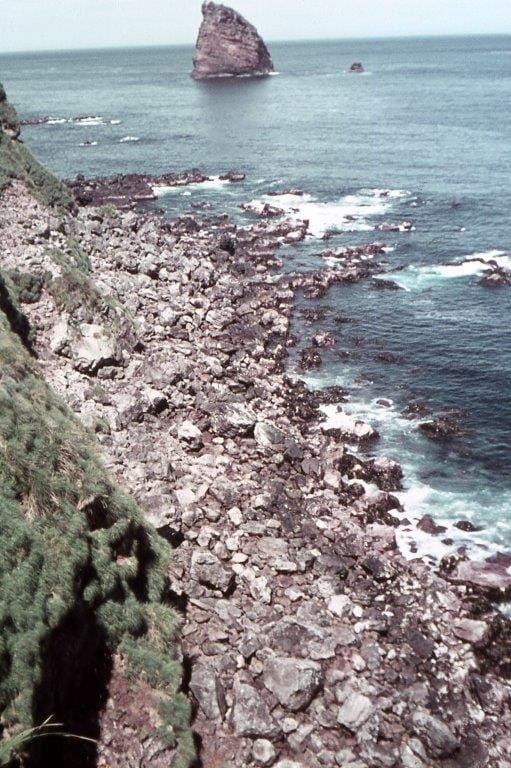
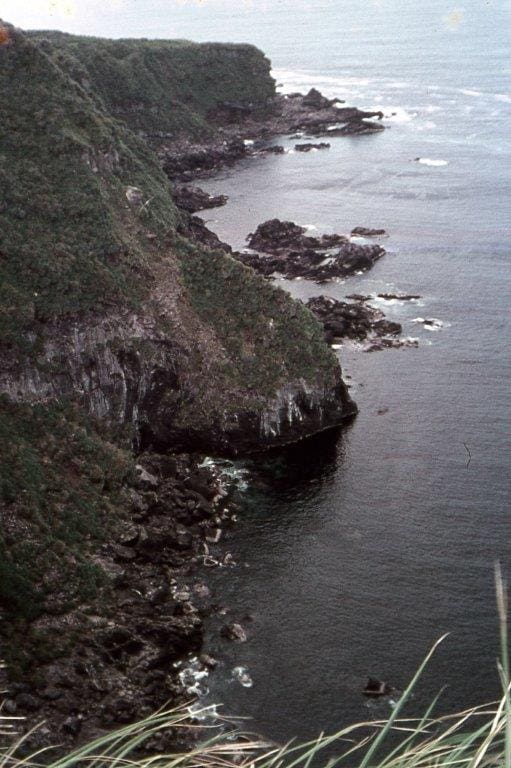 The Gough and Inaccessible Islands World Heritage Site Management Plan focuses on identifying priority actions for the conservation of the property over a five year period, and does not supersede the two existing Management Plans for Gough and Inaccessible Islands. Separate zoning strategies for Gough and Inaccessible Islands have been developed. On Gough, there are Logistic, Marine, Scientific research, and Conservation zones; on Inaccessible there are Accommodation, Natural, Wilderness, and Marine zones. Within these various areas, defined in detail in the respective Management Plans, certain activities are constrained or allowed. A single zoning strategy is needed covering the whole World Heritage property, including the marine area. –
The Gough and Inaccessible Islands World Heritage Site Management Plan focuses on identifying priority actions for the conservation of the property over a five year period, and does not supersede the two existing Management Plans for Gough and Inaccessible Islands. Separate zoning strategies for Gough and Inaccessible Islands have been developed. On Gough, there are Logistic, Marine, Scientific research, and Conservation zones; on Inaccessible there are Accommodation, Natural, Wilderness, and Marine zones. Within these various areas, defined in detail in the respective Management Plans, certain activities are constrained or allowed. A single zoning strategy is needed covering the whole World Heritage property, including the marine area. –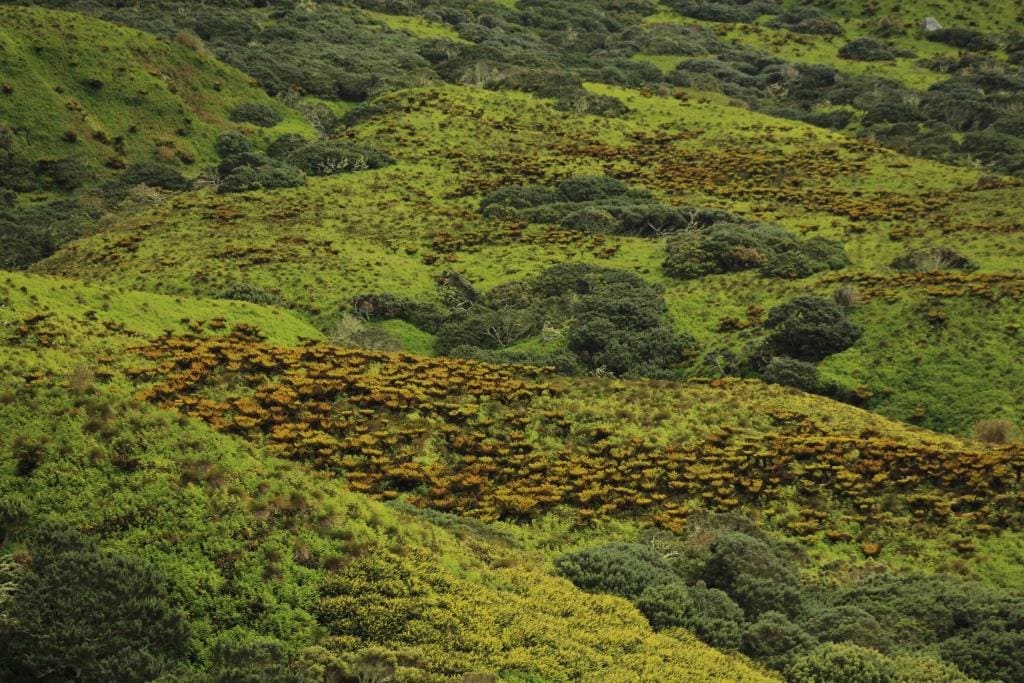
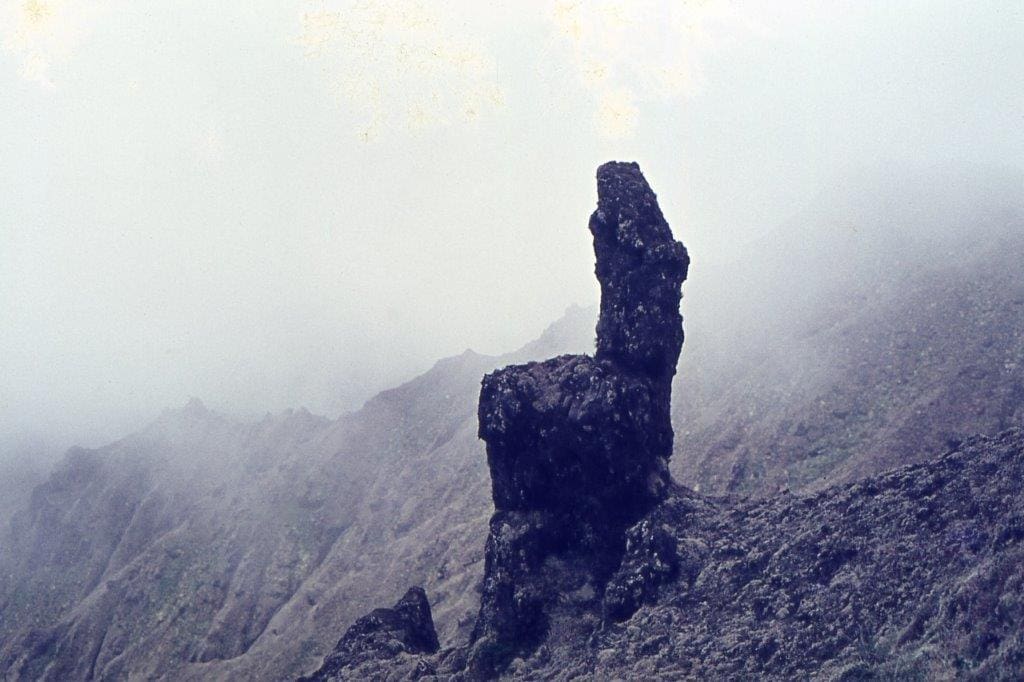
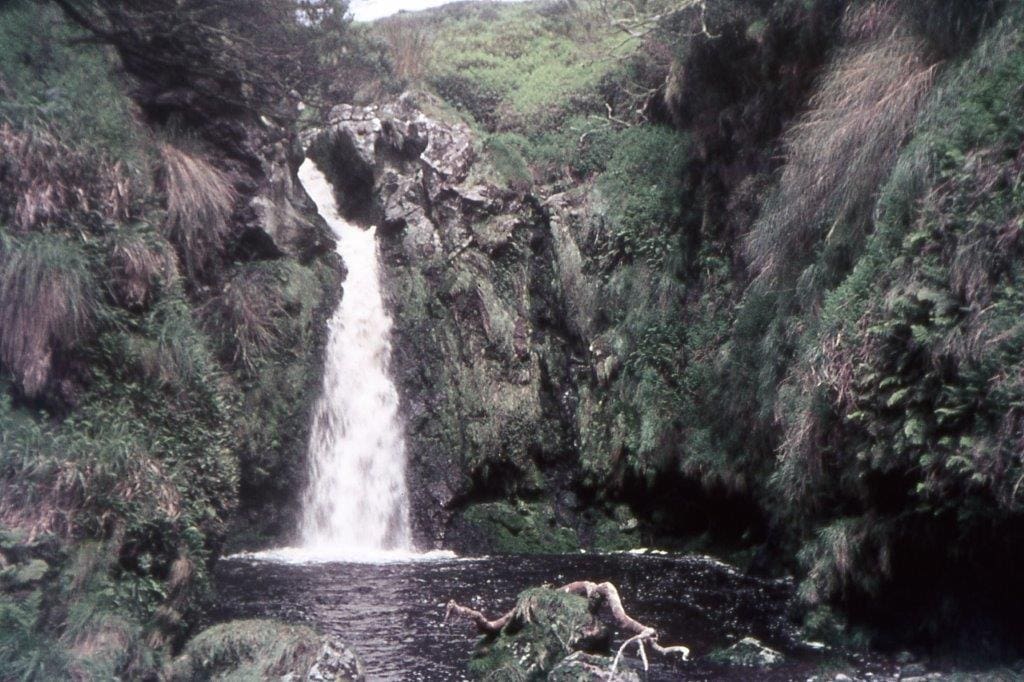 The site, located in the south Atlantic, is one of the least-disrupted island and marine ecosystems in the cool temperate zone. The spectacular cliffs of Gough, towering above the ocean, are home to one of the world’s largest colonies of sea birds. Gough Island is home to two endemic species of land birds, the Gallinule Comeri (Gough Moorhen-below left)and the Gough Rowettia Goughhensis (Gough Finch- below middle,right), as well as to 12 endemic species of plants.
The site, located in the south Atlantic, is one of the least-disrupted island and marine ecosystems in the cool temperate zone. The spectacular cliffs of Gough, towering above the ocean, are home to one of the world’s largest colonies of sea birds. Gough Island is home to two endemic species of land birds, the Gallinule Comeri (Gough Moorhen-below left)and the Gough Rowettia Goughhensis (Gough Finch- below middle,right), as well as to 12 endemic species of plants.
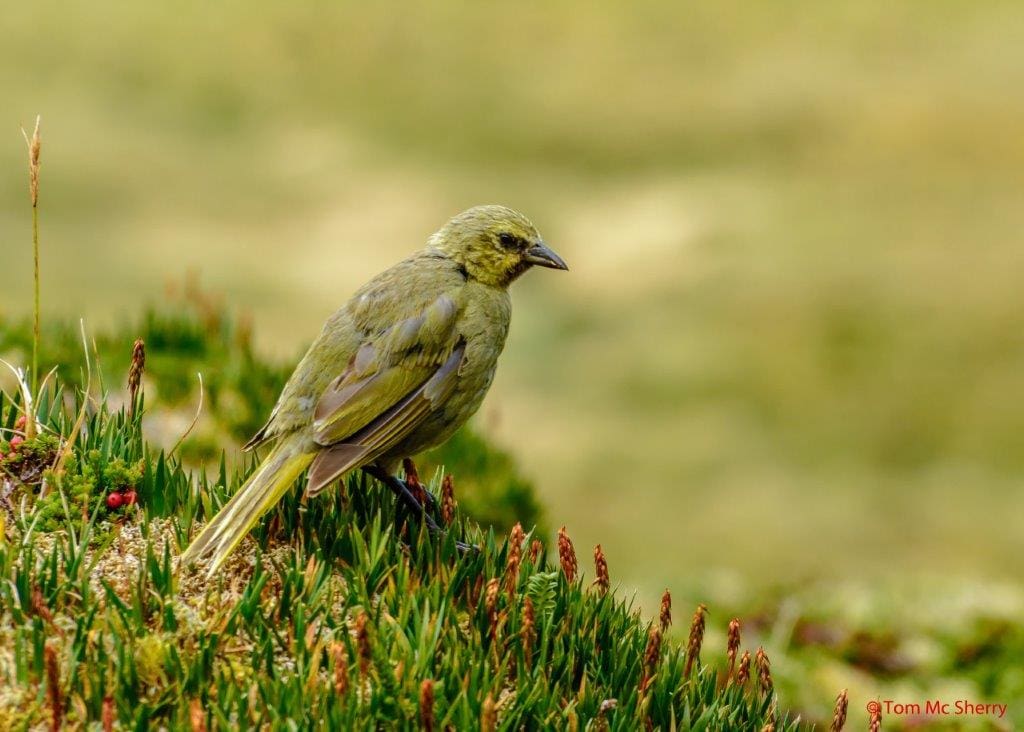
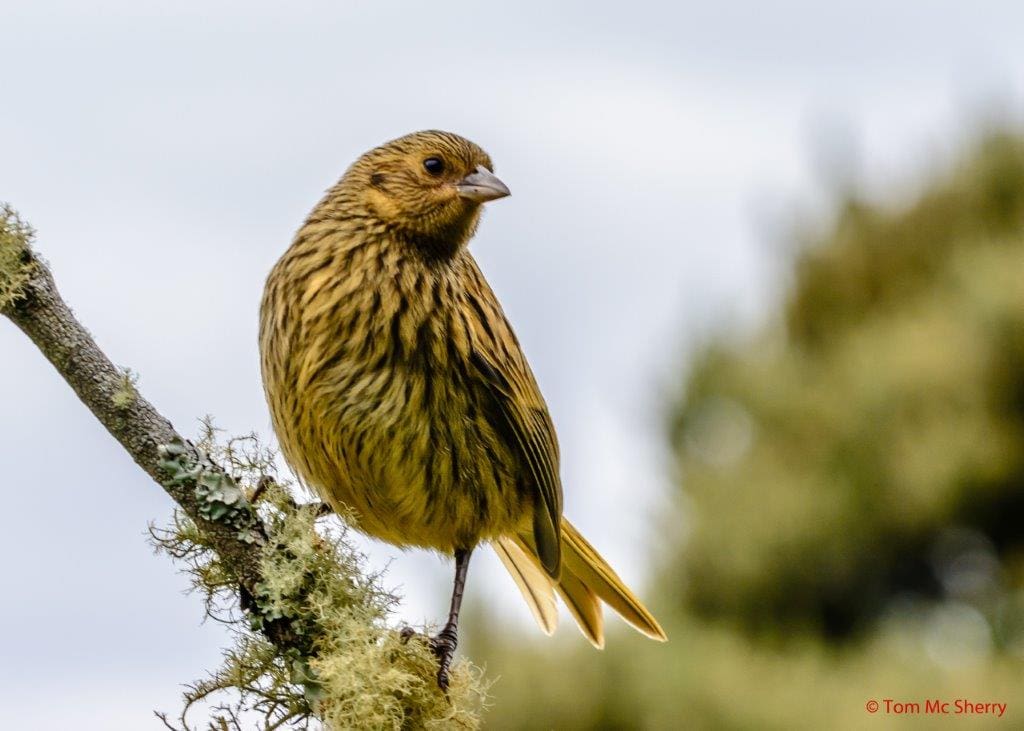
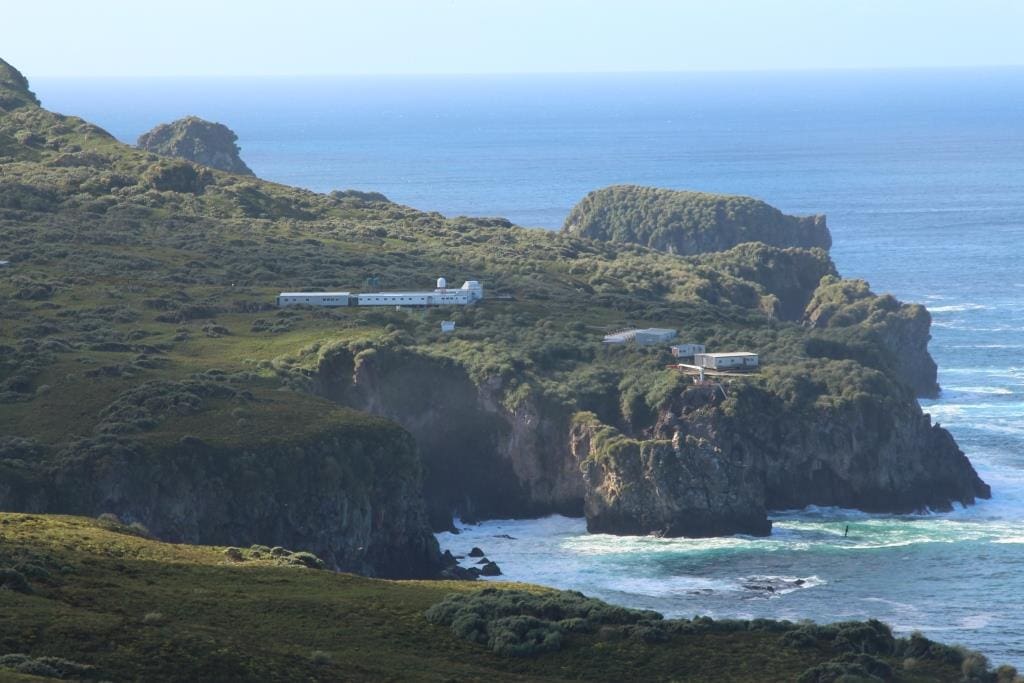 Its position in the path of cold fronts generated in the far Southern Ocean and on their way to South Africa has meant that the conditions experienced at Gough Island serve as an early warning for those that can be expected in South Africa and along the Cape sea route. for this reason, a South African meteorological station has been maintained at the island in an agreement reached with the administration of Tristan da Cunha. From: “Gough Island; a Natural history” by C Hanel, SL Chown and KJ Gaston
Its position in the path of cold fronts generated in the far Southern Ocean and on their way to South Africa has meant that the conditions experienced at Gough Island serve as an early warning for those that can be expected in South Africa and along the Cape sea route. for this reason, a South African meteorological station has been maintained at the island in an agreement reached with the administration of Tristan da Cunha. From: “Gough Island; a Natural history” by C Hanel, SL Chown and KJ Gaston




